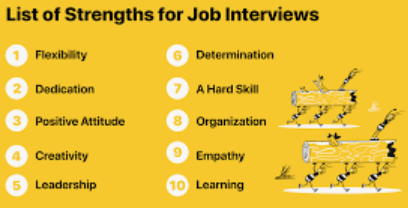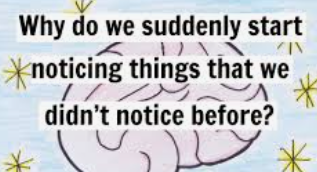Ace Your MBA Job Interview: Mastering Placement Season with Confidence!!
Dear Readers,
The MBA journey is a rigorous climb, culminating in the crucial placement season. Landing your dream job hinges significantly on how you navigate the job interview.
For MBA students, these interviews are not just Q&A sessions; they are opportunities to showcase leadership potential, strategic thinking, and the value you bring to an organization.
This article, inspired by common interview questions, will equip you with the insights to confidently navigate your MBA job interviews and secure your desired placement.
1) Crafting Your Narrative: "Tell Me About Yourself"
This seemingly simple question is your opening act. Instead of reciting your resume, tell a compelling story. MBA students should weave together their academic journey, professional experiences, and career aspirations into a narrative that highlights their growth and trajectory. Explain what sparked your initial interest in business, key learnings along the way (perhaps from internships, projects, or case studies), and articulate how this MBA program and the target job are the logical next steps in your evolving career story.
2) Beyond the Job Description: "What Interests You About This Role?"
Generic answers won't cut it. Demonstrate genuine interest by showcasing your research. Delve into the organization's mission, culture, and values. Identify specific aspects of the role that resonate with your skills and aspirations. MBA programs emphasize strategic alignment; reflect this by explaining how your MBA skillset positions you to make an immediate and meaningful impact within the company and this specific role.
3) Showcase Your Arsenal: "What Are Your Strengths?"
Don't just list strengths; illustrate them. MBA interviews seek to assess your leadership and management capabilities. Choose 2-3 strengths directly relevant to the position. Use the STAR method (Situation, Task, Action, Result) to narrate experiences where you effectively applied these strengths.
4) Learning from Setbacks: "Tell Me About a Time You Failed"
Failure is inevitable; learning from it is crucial. This question assesses your growth mindset and resilience. Share a story of a professional setback, perhaps from a past internship or project. Focus on what you learned from the experience, how quickly you adapted, and how you moved forward. MBA programs are about continuous improvement; show that you embrace challenges and view failures as stepping stones to success.
5) Leading the Charge: "Describe a Time You Motivated Others"
Leadership isn't always about formal titles. This question explores your ability to influence and inspire, regardless of your position. Describe a situation where you motivated a team or individual. Highlight how you tailored your approach to different personalities, communicated persuasively, and fostered a positive environment. MBA students are expected to be team players and motivators; demonstrate your ability to inspire and guide others.
6) Juggling Act: "Time You Had to Handle Multiple Projects?"
MBA life is often about managing multiple deadlines and projects.
7) Embracing the Tide: "Describe a Time You Experienced a Major Change at Work"
The business world is dynamic. This question assesses your adaptability and change management skills. Choose an example where you were impacted by a significant change at work or during your MBA program. Explain how you adapted efficiently, embraced the change, and even helped others adjust. Bonus points if you can demonstrate how you proactively drove positive change.
8) Goal Getter: "What's an Example of a Time You Set a Goal?"
MBA graduates are expected to be goal-oriented and results-driven. Describe a time you set a personal or professional goal. Showcase your ability to set clear, measurable goals and your strategies for achieving them. Detail the replicable steps you took – breaking down the goal, daily actions, adjustments, and improvements. This demonstrates your planning, execution, and problem-solving skills.
9) Navigating Disagreements: "Tell Me About a Time You Disagreed With a Boss"
Conflict resolution and professional communication are vital in any workplace. This question assesses your diplomacy and respect. Share a story where you disagreed with a superior or colleague. Focus on how you communicated transparently and professionally, advocating for your viewpoint while respecting theirs. Highlight how you actively participated in finding a positive resolution, emphasizing collaboration over confrontation. Crucially, avoid badmouthing the other party.
10) Honest Self-Assessment: "What Are Your Weaknesses?"
This isn't a trick question, but a chance to show self-awareness. Avoid clichés like "perfectionism." Instead, describe 1-2 genuine weaknesses that you are actively working to improve. Choose weaknesses that are not critical to the core requirements of the job. Highlight the steps you are taking to address them, demonstrating a commitment to personal and professional growth.
11) Turning the Tables: "Any Questions For Me?"
This is not a formality; it's an opportunity to demonstrate engagement and initiative. Prepare thoughtful questions that show you've researched the company and are genuinely interested in the role and its future. Ask questions that reveal your focus on contributing to their success, such as "What does success look like in the first 90 days for this role?"
12) The Final Word: "Anything We Didn't Have Time to Discuss?"
Never say no! This is your chance to reiterate your key strengths and ensure your most important selling points have been heard. In advance, identify 2-3 key messages you want to convey during the interview. If any haven't been discussed, use this opportunity to bring them up, reinforcing why you are the ideal candidate.
13) Final Word!!
Mastering the MBA job interview is about preparation, practice, and presenting your authentic self with confidence.
Best wishes,
Dr Shashank M Hiremath














WONDERFUL SCRIPTING OF THE PREPARATION FOR FOR PLACEMENTS AFTER MBA. IT IS REALITY THAT EMPLOYERS LOOK FOR GROWTH POTENTIALS FOR COMPANY FIRST AND LATER BASED ON MBA'S CONFIDENCE DECIDE TO OFFER HIM/HER PLACE.
ReplyDeleteIT HELPS PRACTICALITY TO INTROSPECT ONESELF RIGHT OR WRONG TO THE PLACE OFFERED FOR. GREAT 👍
Thank you so much for your words of appreciation and encouragement Sir 🙏
DeleteExcellent sir
ReplyDeleteThank you Sir 🙏
DeleteFantastic Blog Buddy...
ReplyDeleteThank you so much 😊🙏
Delete